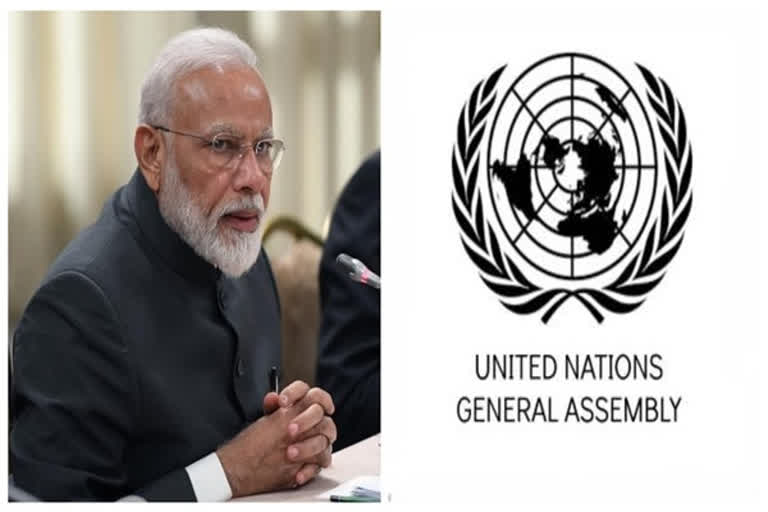New Delhi: Prime Minister Narendra Modi will be participating in the United Nations General Assembly (UNGA) in New York after a gap of three years today.
The world has undergone a significant change since his last visit for the 70th anniversary UN Summit in 2015 when he joined world leaders in adopting Agenda 2030 with its 17 Sustainable Development Goals (SDGs). Agenda 2030 converged the twin streams of development and environmental protection issues.
As Prime Minister Modi said at the Summit, “Much of India’s development agenda is mirrored” in the SDGs.
At the heart of Agenda 2030 is the need for effective international cooperation to implement nationally set development goals. During the Prime Minister’s participation in high-level events in New York between 23-24 September 2019, India’s leadership role in implementing Agenda 2030 will be highlighted. These events include the UN Secretary General’s Climate Action Summit, the High-Level Meeting on Universal Health Coverage, the Sustainable Development Goals Summit, the Leaders Dialogue, as well as India’s own high-level event to commemorate Mahatma Gandhi’s 150th birth anniversary on 24 September 2019.
In 2014, just after the SDGs had been negotiated, Prime Minister Modi had proposed that the UNGA adopt an International Yoga Day on 21 June, the summer solstice, to embody a “holistic approach to health and well-being”. The response of the UNGA to this call for international cooperation was swift and overwhelming, with 177 countries co-sponsoring the proposal within a record 75 days.
This year, the UNGA will applaud India’s success in installing almost 80 GW of capacity for renewable energy by mid-2019, against her national target of 175 GW of renewable energy as a major step to meeting the goal of clean energy under SDG 7. India’s contribution of solar panels to power the UN Headquarters, to be inaugurated during Prime Minister’s visit, will add to India’s profile in using clean energy.
India’s Ayushman Bharat programme, launched in February 2018 targeting 500 million beneficiaries, will similarly count as a major contribution by India to meeting the objectives of SDG 3 on good health and well-being. The successful implementation of the Swachh Bharat campaign will be welcomed as India’s major contribution to reducing open defecation under SDG 6 on sanitation.
In the Preamble to Agenda 2030, world leaders had presciently asserted “there can be no peace without sustainable development, and no sustainable development without peace”. India is expected to focus on reforming multilateralism to ensure this objective during the Prime Minister’s interaction with world leaders at the UNGA. At the core of “reformed multilateralism” is a reformed UN Security Council (UNSC), as mandated by world leaders unanimously in 2005.
Reforming the UNSC is not an altruistic venture for India. The decisions of the UNSC play a major role in providing a supportive external environment for India’s transformation into a major power. India must become an equal participant in UNSC decision-making. China’s initiative to resurrect “The India-Pakistan Question” in the UNSC after a gap of 50 years on 16 August 2019 illustrates the rationale behind this. Similarly, UNSC decisions on stability in the western Indo-Pacific region, including Yemen, Iran and Afghanistan require India to be an equal participant. This region is critical for India’s interests, hosting 8 million Indian citizens remitting $40 billion annually, transporting the bulk of India’s trade and energy trade, and hosting global fibre-optic connectivity for Digital India.
The test for India at the 74th UNGA is to provide leadership for international cooperation at a time when unilateral actions by major powers are increasingly challenging the sovereignty of UN member-states.
The UNGA adopted a resolution on 14 June 2019 to reaffirm the UN’s “faith to multilateralism”. This theme will be incorporated into a plan of action to be adopted by the 75th-anniversary Summit of the UN on 21 September 2020. India must take the lead in this process through the Prime Minister’s address to the UNGA on 27 September 2019 to highlight the organic interdependence of issues of peace, security, and sustainable development.
Also read: 'Howdy, Modi!': PM, Trump greet audience hand-in-hand



